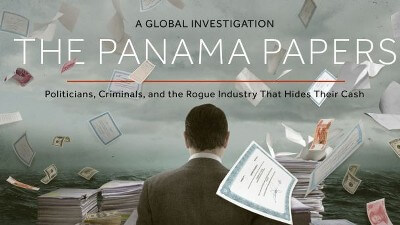What you need to know about the Panama Papers

With all the headlines regarding the Panama Papers some are wondering what the hype is all about. The popular headline refers to the leak of millions of documents from the Panamanian law firm, Mossack Fonseca. BBC News states that the documents include data on 12 current or former heads of state
and at least 60 people linked to current or former world leaders. According to the news source, among those mentioned in the files are Russia’s President, Vladimir Putin; the brother-in-law of China's President Xi Jinping; Ukraine President Petro Poroshenko; Argentina President Mauricio Macri; the late father of UK Prime Minister David Cameron, three children of Pakistan's Prime Minister Nawaz Sharif; Iceland's Prime Minister, Sigmundur Gunnlaugsson; and football’s world governing body, FIFA.
Some of the alleged crimes committed that these leaked documents expose include, money laundering, dodging sanctions and avoiding tax. However, according to The New York Times it is still unclear if the Panama Papers show evidence of any crimes. “Holding money in an offshore company is generally not illegal, although such financial arrangements can be used in illegal ways — for example, to facilitate tax evasion or money laundering.”
The main issue of The Panama Papers was explained simply by Redditor Dan Gliesack, and picked up by Vox's German Lopez and turned into a comic. Gliesack uses piggy banks to help explain the main issue, which Lopez says is, “foreigners setting up Panamanian shell companies to hold financial assets that obscure the identities of their real owners.” The article also speaks to the lengthy effort that has just begun of reviewing the records to determine which activity is legal and which bends the law.
In a video published by La Prensa, President Juan Carlos Varela reaffirmed the country's commitment to tax transparency. All the while the world begins to investigate the alleged financial crimes committed by the rich and powerful following what International Business Times calls a “historic data hack.”
Trending Tags
